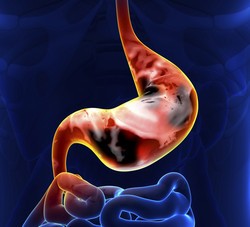The clinical relevance of tumour heterogeneity
The evolution of cancer and the clinical management of patients heavily depend on the intra-tumour molecular and phenotypic heterogeneity. However, the identification of tumour cell subpopulations has proved challenging. The EU-funded SITH (Proteomic segmentation of intratumour heterogeneity for identifying clinically relevant tumour subpopulations in gastrointestinal cancers) project set out to identify clinically relevant tumour cell subpopulations and characterise their properties using omics technologies. Work focused on intestinal-type gastric cancer and invasive ductal breast carcinoma. The goal was to evaluate the impact of intratumour heterogeneity on patient survival and lymph node metastases. Researchers utilised 'Imaging mass spectrometry' (IMS), a method that combines mass spectrometry with microscopy of tissue sections. IMS allows the imaging of different molecules such as proteins, peptides, lipids or metabolites in their histological context. The alignment of mass spectral data with histology revealed molecular heterogeneity between individual tumour samples, and also molecularly common tumour subpopulations across several samples. Association of the generated data with the clinical data of patients with gastric cancer indicated that the presence of different tumour subpopulations was linked with a different overall survival. With respect to breast cancer, less molecular heterogeneity was observed, but still one subpopulation was found to be significantly associated with the presence of local metastases. Researchers next introduced proteomic and metabolomics analysis of these tumour subpopulations to verify the IMS data. Gene expression analyses unveiled further alterations in several signalling and metabolic pathways. Overall, the SITH approach provided a novel angle on the existence of microscopically indistinct tumour subpopulations that have an adverse impact on clinical outcome. Elucidation of intra-tumour heterogeneity is anticipated to accelerate the way we treat cancer.
Keywords
Tumour, tumour heterogeneity, gastrointestinal cancer, tumour subpopulations, proteomic, metastases







